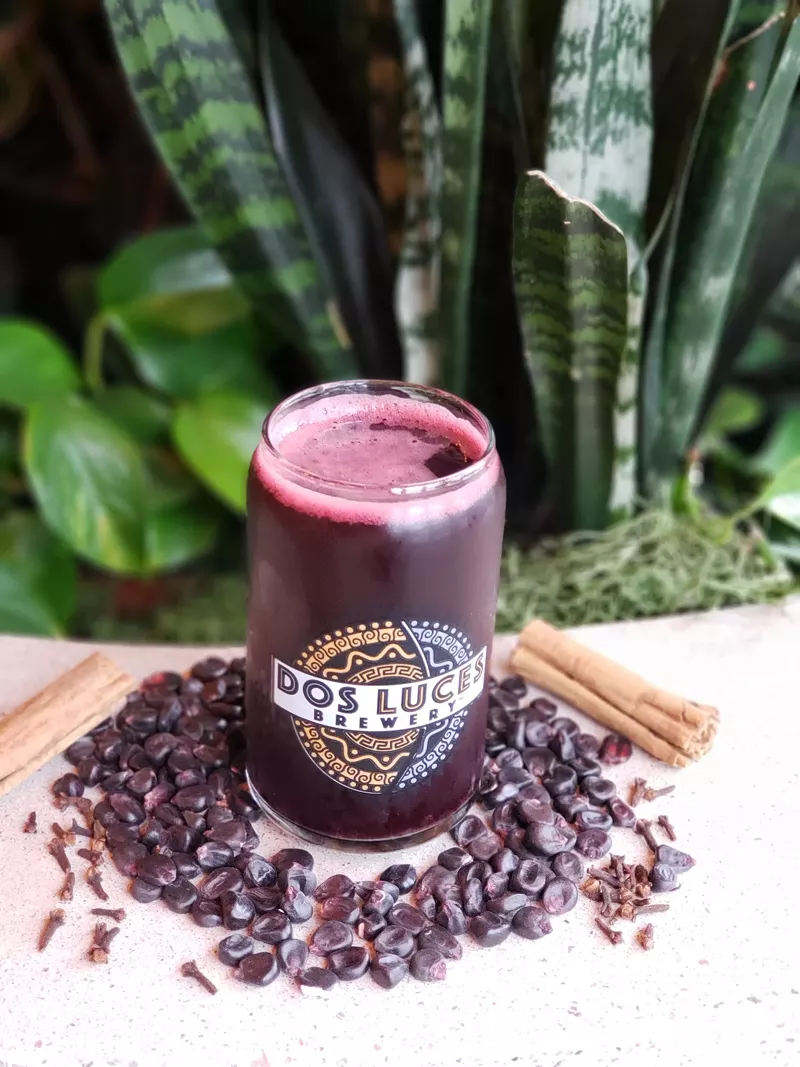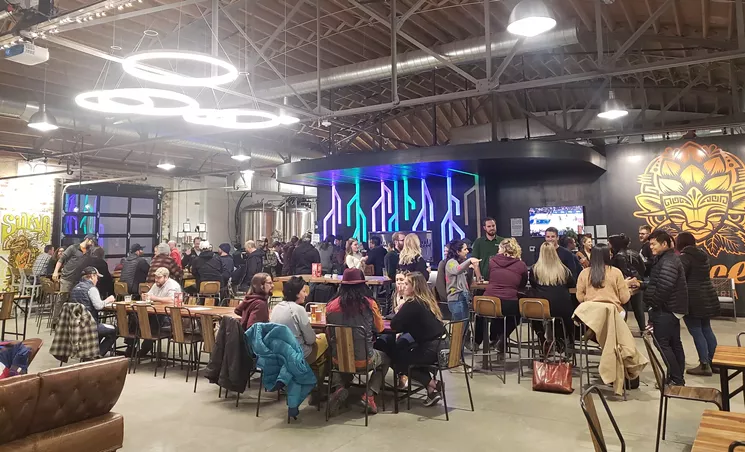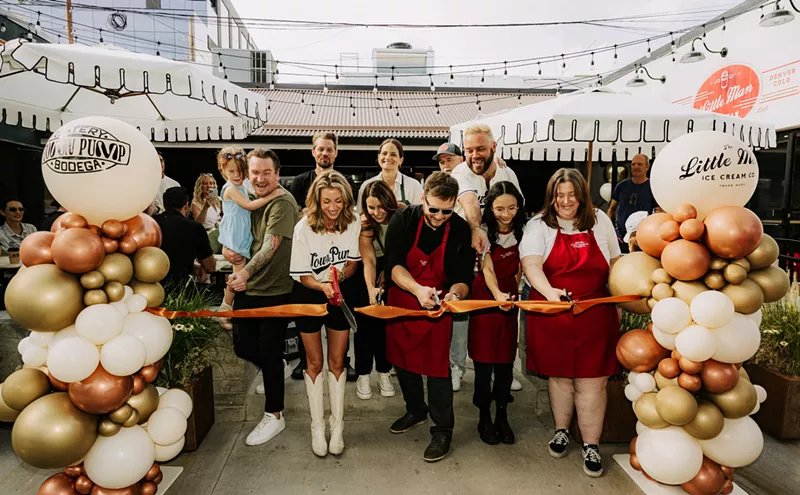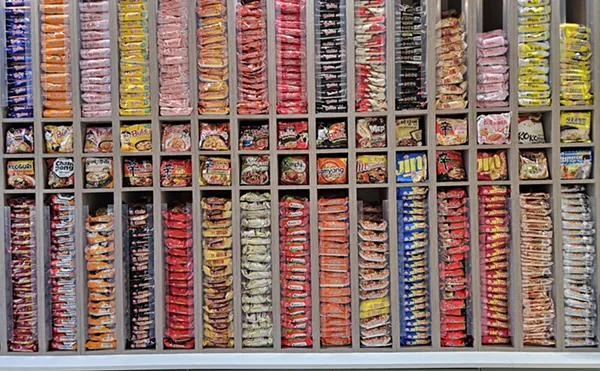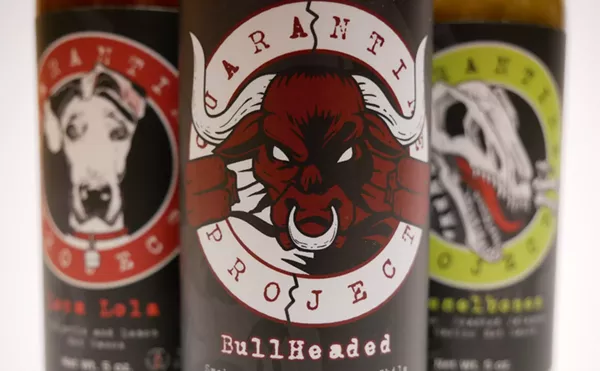Love or hate it, Dry January was back in 2020 — and in a big way. Although the idea of abstaining from alcohol during the first month of the year has been around for decades as a way to recover from holiday madness and kick off the new year in a healthier fashion, Dry January, or Drynuary, really caught on with millennials about a dozen years ago. And lately it's been more popular than ever, thanks to the recent rise of trendy, non-alcoholic beverages and the sober-curious.
But you already know all of that. What you may not know is that there are two breweries in town now serving a pair of non-alcoholic Latin American "beers" that might make you continue Drynuary into Februsober.
The first is Dos Luces Brewing, which specializes in brewing two pre-Columbian alcoholic beverages called chicha and pulque. The former uses corn rather than barley; it dates back to the Incan civilization, in what is now Peru. The latter, milky white and tart, is brewed from the nectar of the maguey plant.
Chicha Morada is a non-alcoholic version of chicha. Made from purple corn, fruit, spices and sugar, the brilliantly colored concoction is unfermented and sweetened with a touch of maguey nectar. And the way Dos Luces makes it, it bursts with fruit that gives it an incredibly refreshing drinkability.
The latest batch "caters to the Peruvian grandmothers who frequent our watering hole," says Dos Luces owner Judd Belstock, meaning it has a bit more sugar to enhance the spice flavors.
At Raices Brewing, meanwhile, you can find an on-tap version of malta, a non-alcoholic beverage made from barley (and sometimes corn), hops and water, but without the fermentation. Consumed like soda in many Latin American countries, this dark, sweet drink is also popular in Puerto Rico and elsewhere in the Caribbean.
First brewed in Germany at around 2 percent ABV for the elderly, children and pregnant mothers, it moved to other countries over the decades, including some in Africa. The Latin American versions don't have alcohol.
The Raices malta, made in house, smells the way beer does while it is being boiled — an aroma that homebrewers will recognize immediately, and tastes like like malty beer candy.
Raices co-owner Jose Beteta keeps it on tap for kids, but also for people who don't want alcohol. "It's very widespread," he notes, "and more popular around the world than people would think."

Audio By Carbonatix
[
{
"name": "GPT - Billboard - Slot Inline - Content - Labeled - No Desktop",
"component": "23668565",
"insertPoint": "2",
"requiredCountToDisplay": "2"
},{
"name": "STN Player - Float - Mobile Only ",
"component": "23853568",
"insertPoint": "2",
"requiredCountToDisplay": "2"
},{
"name": "Editor Picks",
"component": "17242653",
"insertPoint": "4",
"requiredCountToDisplay": "1"
},{
"name": "Inline Links",
"component": "18838239",
"insertPoint": "8th",
"startingPoint": 8,
"requiredCountToDisplay": "7",
"maxInsertions": 25
},{
"name": "GPT - 2x Rectangles Desktop, Tower on Mobile - Labeled",
"component": "24956856",
"insertPoint": "8th",
"startingPoint": 8,
"requiredCountToDisplay": "7",
"maxInsertions": 25
},{
"name": "Inline Links",
"component": "18838239",
"insertPoint": "8th",
"startingPoint": 12,
"requiredCountToDisplay": "11",
"maxInsertions": 25
},{
"name": "GPT - Leaderboard to Tower - Slot Auto-select - Labeled",
"component": "17676724",
"insertPoint": "8th",
"startingPoint": 12,
"requiredCountToDisplay": "11",
"maxInsertions": 25
}
]

